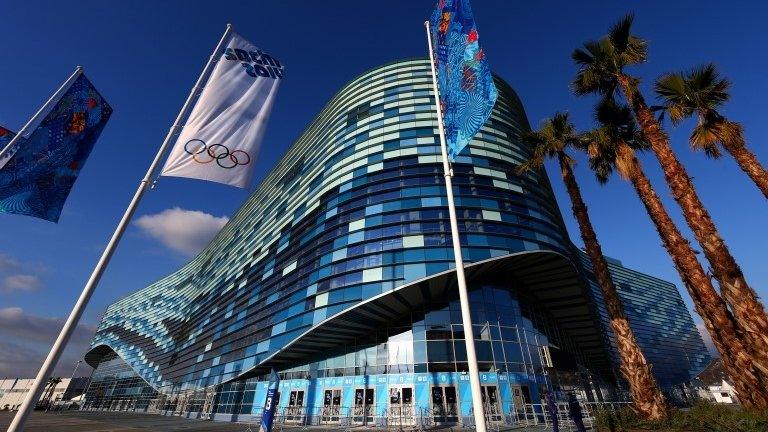Sochi 2014: Team GB want social media protection
- Published
Websites such as Twitter and Facebook can do more to protect people from online abuse, says a leading British official at the Sochi 2014 Olympics.
Short track skater Elise Christie said she had been bullied online following her crash in Thursday's 500m final.
"Why are the service providers getting a free pass? It's unconscionable," the British Olympic Association's Darryl Seibel told BBC Sport in Sochi.
"They provide the portal. They have full sight of what's going on."
Christie believes much of the abuse she suffered online came from South Korea, via Facebook and Twitter, following her collision with Korean rival Park Seung-hi in the 500m.
Some of the abusive and threatening messages she received made specific reference to Park, who had been considered a favourite to win gold until her involvement in a three-way crash that Christie was later ruled to have caused.
Seibel, director of communications for Team GB at the Games, oversees a team responsible in part for guiding British athletes' use of social media.
He said: "[Some of the messages were] quite distasteful. It is worrying to see just how easy it is for individuals to use social media as a vehicle to bully and harass people.
"It has been our experience that when asked, service providers such as Twitter do act quickly in shutting down sites or removing offensive content. [But] I do believe service providers must be a part of the solution and probably could do more to help keep these things from happening."
Twitter would not directly comment but said that with 500 million tweets per day, it could not proactively monitor content.
Wilf O'Reilly, a former short track competitor now commentating on the sport for the BBC, has worked with the Dutch team alongside his extensive experience of the British programme.
Confusion as Christie disqualified again
"The Dutch team have a policy that, 48 hours before the event, [social media] gets shut down," said O'Reilly.
"The athletes self-police it, but the policy from the national Olympic committee is that they'd prefer you not to.
"But social media is something of today, something people will always use. Shutting it down is not necessarily the best way to do it, you have to use common sense."
Seibel said: "We embrace social media. We think it can be a very effective way of communicating with a number of different audiences, particularly young people. For many of our athletes, social media is a part of their life.
"We provide our athletes with guidance on the most effective ways to use social media. We wouldn't want athletes to have their Olympic experience defined by the amount of time they spend on social media."
Asked whether a form of ban on social media may have helped Christie avoid the abuse she received, Seibel disagreed.
"We wouldn't advise that right now. We see social media being more positive than not," he said.
"You have to recognise, this is a part of their life. This is how athletes today grow up, how they communicate with their friends, family and supporters. If you take that away from them, you have to think about what the implications of that are.
"This isn't an environment where it's necessarily helpful to introduce new and different things to their rhythm, their pattern."
He added: "We shouldn't make the mistake of thinking it's limited just to high-profile sports figures, because it's not. There are young people who aren't competing on big, bright stages, who are subjected to horrible forms of abuse. The service providers have a responsibility.
"I don't think it's entirely reasonable to say it's up to law enforcement, or the Football Association, or the Rugby Football Union, the BOA or any other governing entity when service providers sit right at the heart of this.
"We don't provide these tools, we don't market these tools. They do."
Christie competes in the 1,000m heats - her preferred event - on Tuesday, having twice been disqualified and suffered online abuse since arriving in Sochi.
"She's a tough cookie, she's got that Scottish grit," said performance director Stuart Horsepool.
"Sport can be cruel sometimes. We still have opportunities to get something from the Games. We have been posting some really fast times in training and we have confidence we can produce our best performances.
"I am as confident [in Elise] now as when the Games started, but short track is unpredictable. She's in the best shape of her life but she's got to have luck too."
- Published15 February 2014
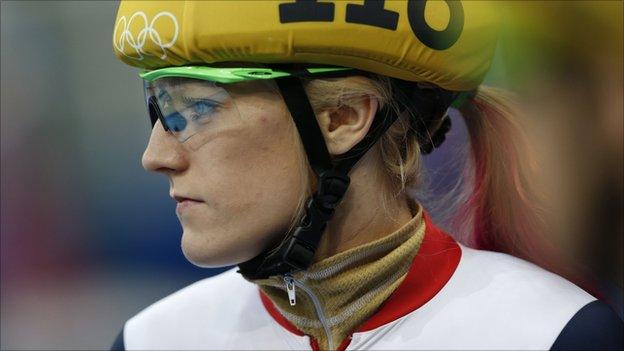
- Published15 February 2014
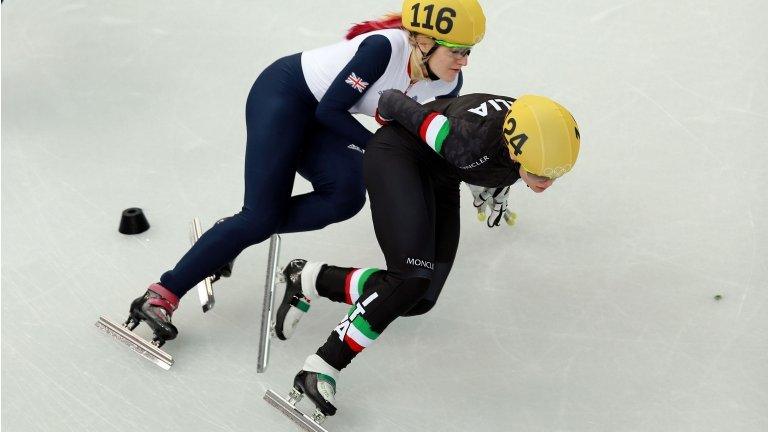
- Published13 February 2014
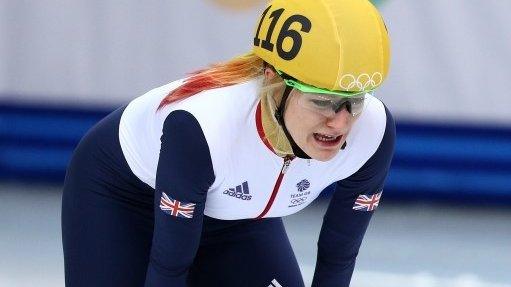
- Published9 February 2014
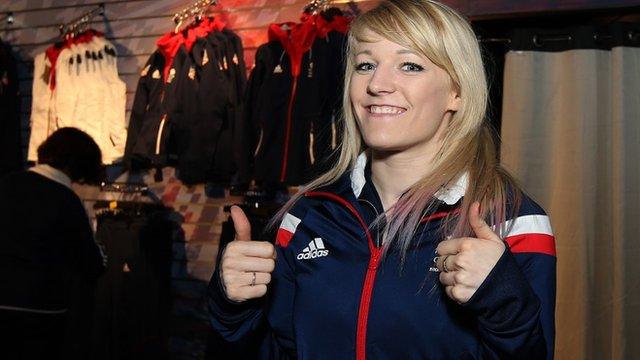
- Published19 July 2016

- Published17 February 2014
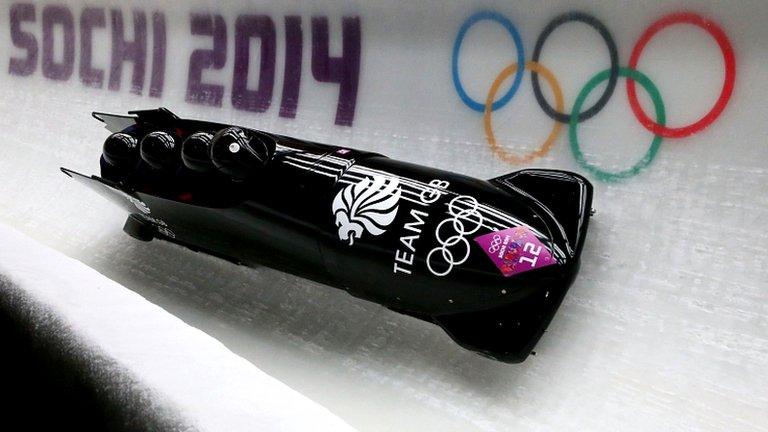
- Published10 January 2014
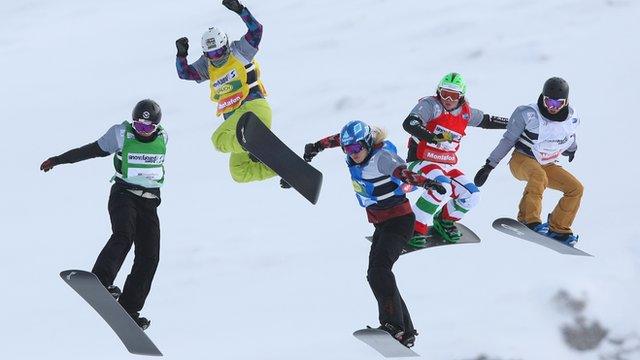
- Published22 January 2014
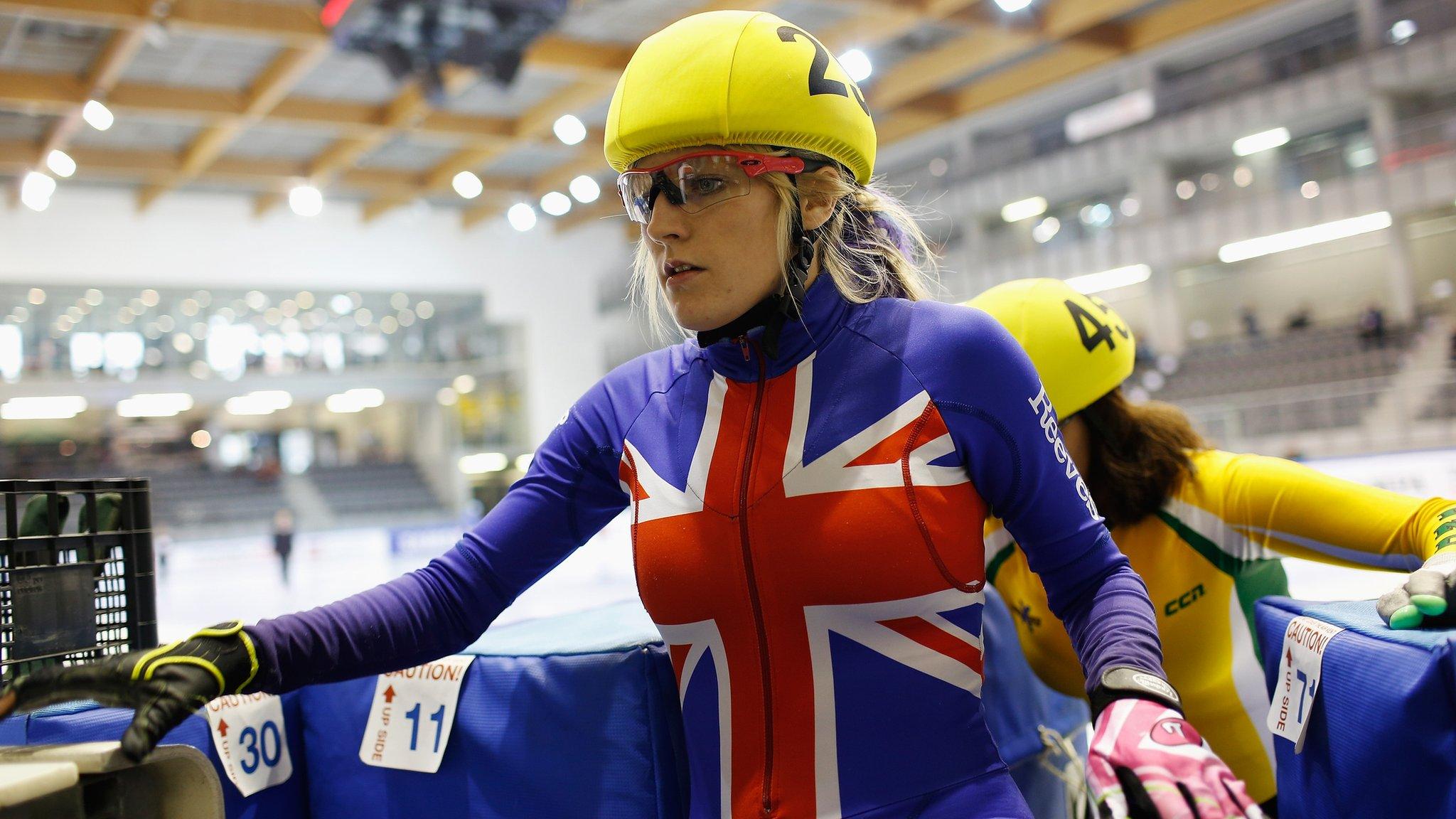
- Attribution
- Published5 February 2014
